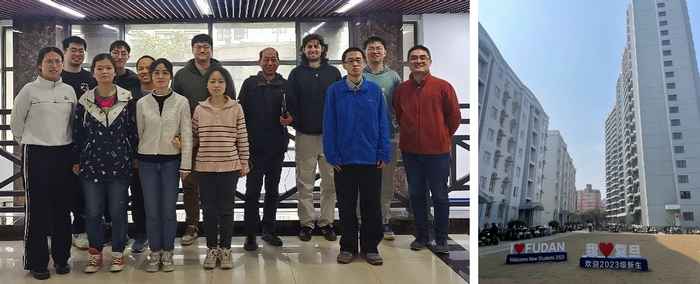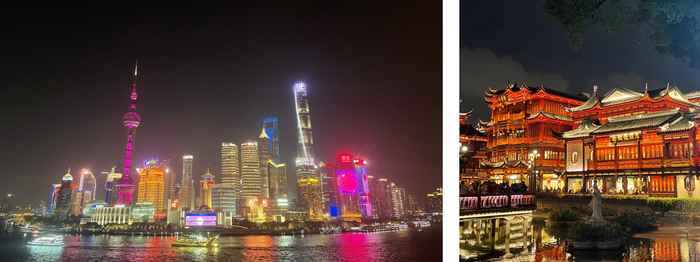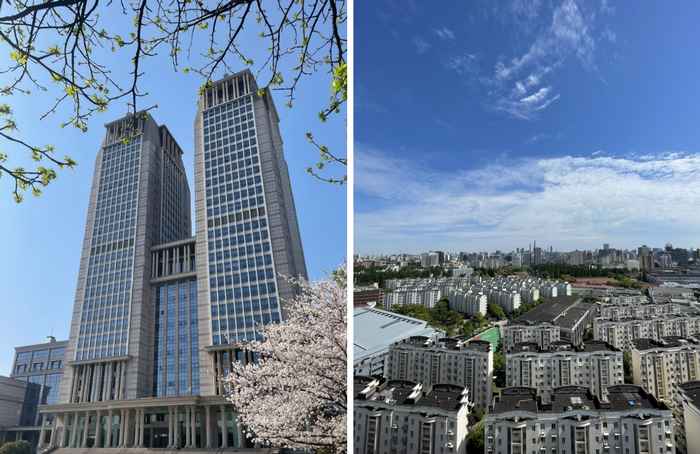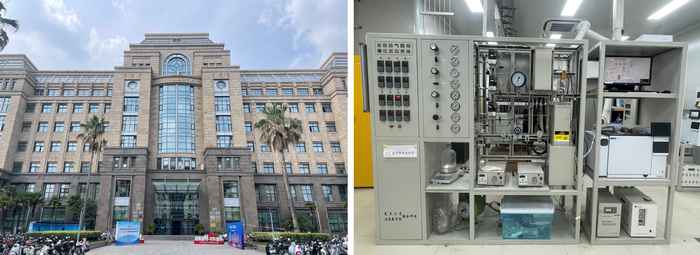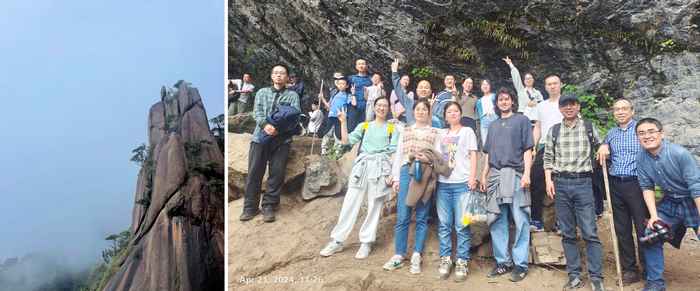Bridging cultures: An unforgettable exchange experience at Fudan University
Travel report Xhoi Xhaferri

China, with its ancient history, rich cultural heritage, and stunning landscapes, is undoubtedly one of the most exciting places to visit and study. My study exchange at Fudan University in Shanghai offered me a unique opportunity to immerse myself in this fascinating country. From the vibrant city life and unique academic environment at one of China’s top universities to the magnificent natural parks, my experience was both challenging and memorable.
Upon arriving in China, the cultural shock was immediate. The pace of life, the language barrier, and customs were initially overwhelming. But do not worry, the kindness and hospitality of the people will quickly ease your transition if you ever move there. And that is exactly what happened to me. Zeng Xiao, a PhD student at Fudan University who was to be my daily supervisor, was there to greet me on my arrival. He guided me through the necessary bureaucratic processes and helped me settle in.
This warm welcome extended to the whole research group, and soon, lunches and dinners became opportunities to bond and learn more about each other. I will never forget my first traditional Chinese meal with Prof. Hualong Xu, Prof. Shen Wei, Dr Zheng, and Zeng Xiao. We sat around a large, rotating table, sharing a variety of traditional dishes – a culinary experience that marked the beginning of my adventure in China.
Life in Shanghai
Shanghai is a big city. Actually, it is an enormous city. In fact, it is the second most populated city in the world and its sheer size is immediately apparent. Everything is gigantic, from the university campuses to the train stations, often dwarfing European counterparts. Shanghai offers countless activities, from museums and temples to modern skyscrapers, parks, and traditional neighbourhoods. The city’s efficient and affordable public transportation system makes exploring easy and cheap. Bike and scooter rentals can be used effortlessly at any time and in any part of the city. All you need is an App on your mobile device.
I rented an electric scooter for only 200 RMB (around 25 euros for a full month), and I must say it was one of the best choices I have made there. It allowed me to navigate the city quickly, avoid traffic, and travel economically (a full charge of the scooter costs around 10 cents!). Beyond the modern architecture, the traditional areas of Shanghai provided a glimpse into authentic Chinese life, especially in the evenings. Don’t just consider Shanghai for its innovative buildings and technology but take your bike and ride around these streets, surrounded by locals, to truly experience the essence of Shanghai. In a few words, it is impossible to get bored in such a city.
Academic Life at Fudan University
Fudan University is among the most prestigious institutions in China, and I was truly honoured to do research there. Ranked third in China, Fudan maintains an exceptionally high academic standard which is evident in even the smallest details. Everything is made to make the students’ lives as easy as possible so that they can fully focus on their studies. The university’s four campuses across Shanghai are so large that each feels like a small, self-sustaining town. From departments, parks and canteens to even banks, supermarkets and pharmacies. And everything is kept extremely secure with guards’ stations and cameras.
I was based at the Handan campus, the main one, which hosts all international students. This campus was the ideal place to immerse myself in Chinese culture while still maintaining a connection to home. The daily routine was straightforward: lectures in the morning, lunch at the canteen, and then sports or other activities in the afternoon (but not for me, I continued doing research). The canteens, however, deserve special mention. They were more than just places to eat – they were the heart of the campus, where we spent hours socializing, playing games, listening to music and studying.
My Research Project
The amount of research that is done at Fudan University is mind-blowing. The laboratories, located at the Jiangwan campus, are separated into two different buildings, the Advanced Materials and Chemistry departments. Each one of them has eight floors filled with laboratories with the newest equipment. It’s a paradise for any chemist!
The research project I focused on was both challenging and enlightening. I worked in the group of Prof. Hualong Xu on synthesizing a bifunctional zeolite-metal oxide catalyst for the syngas-to-aromatics reaction. While many catalysts are already quite known to work for this reaction, the main challenge to scaling up the process lies in achieving high selectivity and conversion. Despite the limited time, I decided to work on a Fe-ZnCr catalyst in a different way in hopes of obtaining good results. We tested numerous catalysts with various preparation methods and performance parameters. The catalyst showed slightly better results than the state-of-the-art, however, it still needs more work.
Exploring Beyond Shanghai
My time in China was not limited to Shanghai. As a country with the second-highest number of UNESCO World Heritage Sites globally, China offers an abundance of incredible places to explore.
With my research group, I visited and hiked through the forests and waterfalls of the Shangqing Ancient Trail, situated in Shaoxing County, just 2-3 hours away from Shanghai. Everything was perfectly organized, and we shared a wonderful weekend together. Additionally, with some friends, I visited the well-known Wangxian Valley and Sanqingshan National Park, where I witnessed some of the most breathtaking landscapes I have ever seen. These trips greatly enriched my experience, allowing me to fully appreciate China’s natural beauty.
What makes China great – its people
What impressed me most about China, without a doubt, were the people. Their kindness is remarkable, and they are always willing to help, no matter the situation. Moreover, their hospitality is something unmatched.
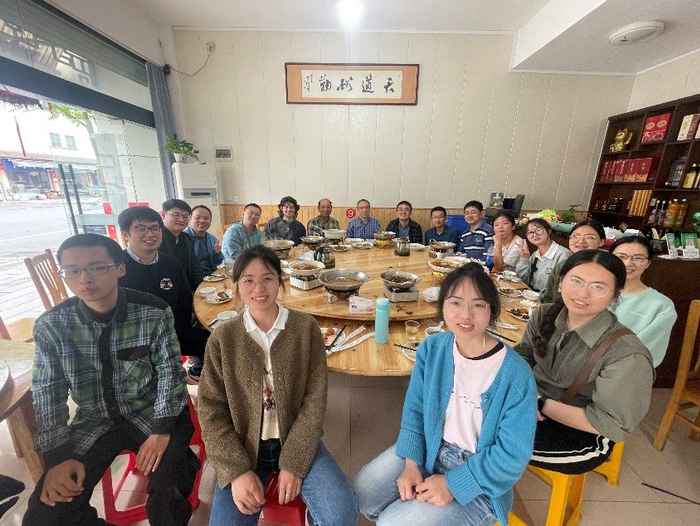
Whether it was for dining out or simply a drink, I was always gently taken care of. Not to mention the kindness and hospitality I received as soon as I arrived. My professors and supervisor assisted me with everything and treated me perfectly.
Final thoughts
All in all, what I can say about such an experience is that it has been unexpectedly life-changing and wonderful. Especially for anyone who has not yet been to Asia, going there for some time is something I highly recommend. Even if it will be for a short exchange, pack your stuff and go. China has so many things to offer that most of us are unaware of and has drastically changed over the past few years. Also, if you ever have the opportunity to do research in any of their top universities, seize it. The dedication to research and work ethic you will encounter will provide invaluable insights to bring back to Europe.
I would like to thank once again Professors Gadi Rothenberg and Hualong Xu, as well as the student travel program of the Sustainable Chemistry RPA, for having made all of this possible.
Xhoi Xhaferri, Italy, 28 August 2024
